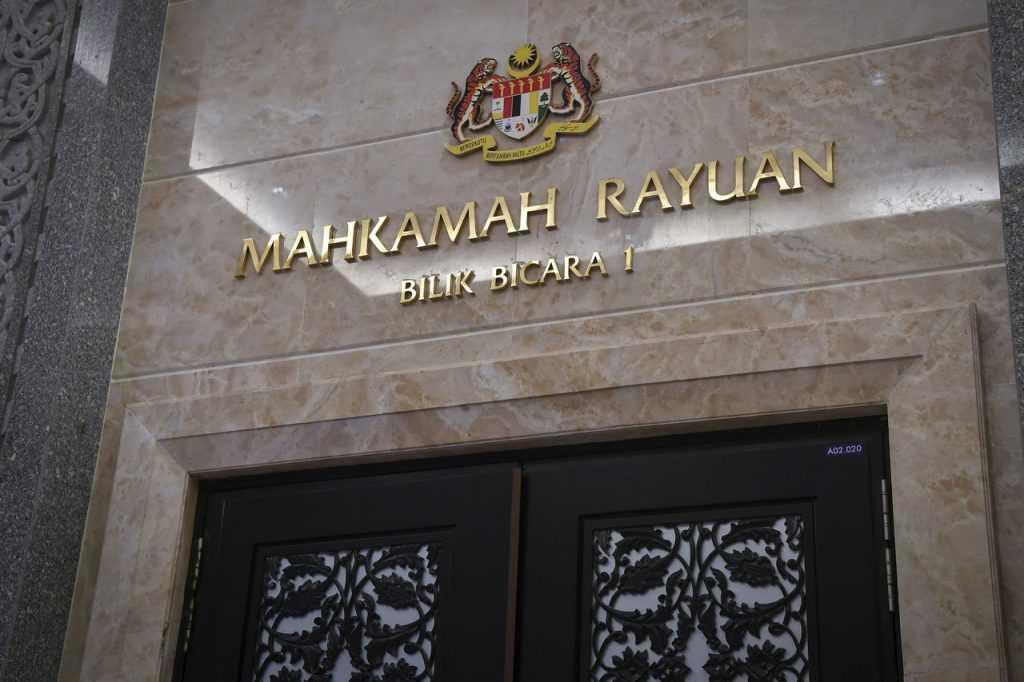Appeals court upholds teen's jail sentence over tahfiz fire
It also rejects the prosecution's appeal against the acquittal of another teenager by the High Court.
Just In
The Court of Appeal today upheld the decision of a High Court in ordering a 22-year-old man (PKK1) to be detained at the pleasure of the Yang di-Pertuan Agong after finding him guilty of the murder of 23 people in a fire at the Darul Quran Ittifaqiyah tahfiz centre in 2017.
A three-member bench comprising justices Abu Bakar Jais, Che Mohd Ruzima Ghazali, and See Mun Chun dismissed the appeal by PKK1 after concluding that the High Court's conviction of him was safe and should be upheld.
The same panel also dismissed the prosecution's appeal against the High Court's decision to acquit and discharge another man (PKK2), also aged 22, of the murder without calling for his defence.
Justice Che Mohd Ruzima, who read out the court's decision, said the court agreed with the findings of the High Court judge in ruling that the circumstantial evidence presented by the prosecution was strong and pointed in one direction, namely that PKK 1, along with another unidentified person, climbed behind the school's fence to start a fire in the school, which killed 23 people.
He said the prosecution had succeeded in proving through circumstantial evidence that the young man was responsible for starting the fire at the tahfiz school, and he knew that his actions were dangerous and could lead to death.
"We agree with the findings of the High Court judge that the minor offender (PKK1) chose a lighter from several lighters in his bedroom, which shows that he knew which lighter he was using to start the fire at tahfiz school," Ruzima said.
He said PKK1's conduct was admissible under Section 8 of the Evidence Act 1950 and could be considered as part of the circumstantial evidence supporting the prima facie case against him.
Ruzima said High Court judge Azman Abdullah (now a Court of Appeal judge) was not wrong in his decision to reject the young man's defence of alibi.
This, he said, was based on the evidence of the defence and the prosecution that the young man was at the back fence of the tahfiz school building before the fire broke out.
Regarding the prosecution’s appeal against the High Court's decision to acquit and discharge PKK2, Ruzima said the decision was factually and legally correct.
He said this was based on the grounds that the prosecution failed to prove that PKK2 was the one who inflicted the bodily harm on all the victims and that he had the intention to cause death when doing the act.
Ruzima said the court disagreed with the prosecution's argument that PKK2 was the second person who climbed over the fence at the back of the tahfiz school along with PKK1 on the morning of the incident.
He said that in proving the circumstantial evidence supporting the statements of the two prosecution witnesses, the prosecution relied on the inference on the size of the opening of the barbed wire fence of the building, which was not that big, and submitted that the second person who entered the tahfiz school compound together with the first youth was PKK2 due to his small body size.
"We have found that there is doubt about the facts regarding the fence at the back of tahfiz school. Therefore, the conclusion relied upon by the prosecution to support the statements of two witnesses cannot be safely used against PKK2," he said.
Two prosecution witnesses testified that they saw an unidentified person climbing the back fence of the tahfiz school together with PKK1.
Ruzima said that, on the contrary, the fact can also lead to the conclusion that the persons who climbed over the back fence along with PKK1 were probably two other witnesses who were also present at the scene.
In his statement of defence, PKK1 denied having climbed the fence at the back of tahfiz school, but claimed that he was with his friends, namely PKK2 and the two witnesses.
"If there are more than one inference, then the inference in favour of PKK2 must prevail, and the benefit of the conclusion must be in favour of PKK2," he said.
PKK1, who is now 22 years old, is appealing against the High Court ruling on Aug 17, 2020, ordering him to be detained at the pleasure of the Agong after finding him guilty of the murder.
He was 16 years old at the time of the incident.
According to the charge, the youth, together with another person still at large, was accused of murdering and causing the deaths of 23 people in the tahfiz centre at Jalan Keramat Hujung, Kampung Datuk Keramat, Wangsa Maju in Putrajaya, between 4.15am and 6.45am on Sept 14, 2017.
He was charged with 23 counts of murder, each framed under Section 302 of the Penal Code and read together with Section 34 of the same law, which provides for the mandatory death sentence upon conviction.
However, Section 97(1) of the Child Act 2001 stipulates that a death sentence shall not be pronounced or recorded against a person convicted of an offence if the child is under the age of 18, and in lieu of the death sentence, as provided under Section 97(2) of the same law, the court shall order the person to be detained at the pleasure of the Yang di-Pertuan Agong.
Subscribe to our newsletter
To be updated with all the latest news and analyses daily.
